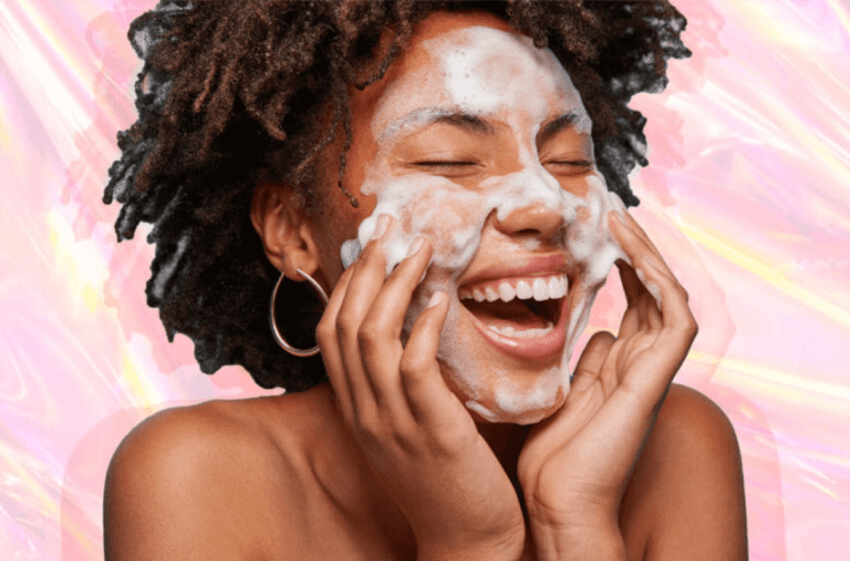These Sites Help You Know WTF's In Your Products
 via Giphy
via Giphy
In the last few years, the world has become obsessed with skincare. For many, this means paying close attention to the labels behind their products. While this may seem slightly OTT to some, understanding how ingredients work can help you curate a routine that benefits your skin… Plus, you’d know exactly what to look for on your skincare shopping sprees! Honestly, it takes your skincare game to new heights.
Whether you’re a skincare junkie or new to the game, we’ve put together a list of bomb.com websites that break down techy labels into easy-to-understand language so you know what it *actually* does for your skin – all you have to do is search the product name or copy and paste the ingredients and voilà. SO easy, right?
Everyone’s skin is different, so having a knowledge of what products or ingredients work for your skin (or not) can be really helpful. We recommend using these sites to guide you through hard-to-read, harder-to-understand product labels instead of depending on them entirely. Now let’s get you scrolling, clicking, and decoding.
1. Best On-The-Go: Think Dirty
View this post on Instagram
Bookmark for: An application for wellness junkies and skincare newbies to understand how ‘clean’ their products are.
Explained: Since many brands create their own ‘clean’ checklist when it comes to skincare ingredients, the founders of Think Dirty wanted to help consumers understand the good (and bad) within the chemical content of their beauty products. Simply scan a product’s barcode and it’ll instantly give you easy-to-read info about its ingredients, along with ‘cleaner’ options to shop.
2. Best For Routine: SkinSort
View this post on Instagram
Bookmark for: A website that explains ingredients, compares products and offers budget-friendly alternatives to expensive formulas. It even helps you track your journey of curating the best routine for your skin’s needs.
Explained: Apart from its super cute visuals and concise ingredient descriptions, SkinSort is THE Gen-Z friendly skincare bible. Not only does it allow you to track the results of your new formulas by adding them to your profile’s shelves, it compares different products to help you find “the one.” Oh, and it has 60 filters to sort through over 27,000 ingredients so you can find amazing formulas that amp up your glow game.
3. Best Explainers: SkinCarisma
View this post on Instagram
Bookmark for: Designed to help those with sensitive skin find soothing saviors. SkinCarisma is a handy tool that breaks down the ingredients in products and lists what they *actually* do for your skin.
Explained: With tons of product categories (cleansers, toners, etc.) and formula preferences (sulfate-, alcohol-, or paraben-free) Skin Charisma helps your filter through the science jargon. And DW, if their library doesn’t have a product you’re looking for, copy and paste its ingredients into their search bar for useful ingredient info.
Posts You'll Love:
4. Best For Quick Info: INCIDecoder
View this post on Instagram
Bookmark for: A website that decodes the “inkey,” also known as the ingredient list, to help you understand what’s in your fave formulas.
Explained: Decode tongue-twisting ingredient terms by pasting them into INCIDecoder’s search bar to find out what they do for your skin. You can even search by product to get a quick skim-through of what it contains, along with good-to-know info on its ingredients.
5. Best Database: CosDNA
View this post on Instagram
Bookmark for: A skincare website slash library that ranks dozens of ingredients based on a curated safety index.
Explained: CosDNA is known in the beauty industry for its jaw-dropping collection of ingredient-info. Simply search for a product and its database will assess its ingredients on a scale of one to nine (the lower the number, the better) along with a red-yellow-green color grading system to help you understand how ‘safe’ it may be for your skin type.
Have you found any others? Let us know in the comments!























Leave a comment